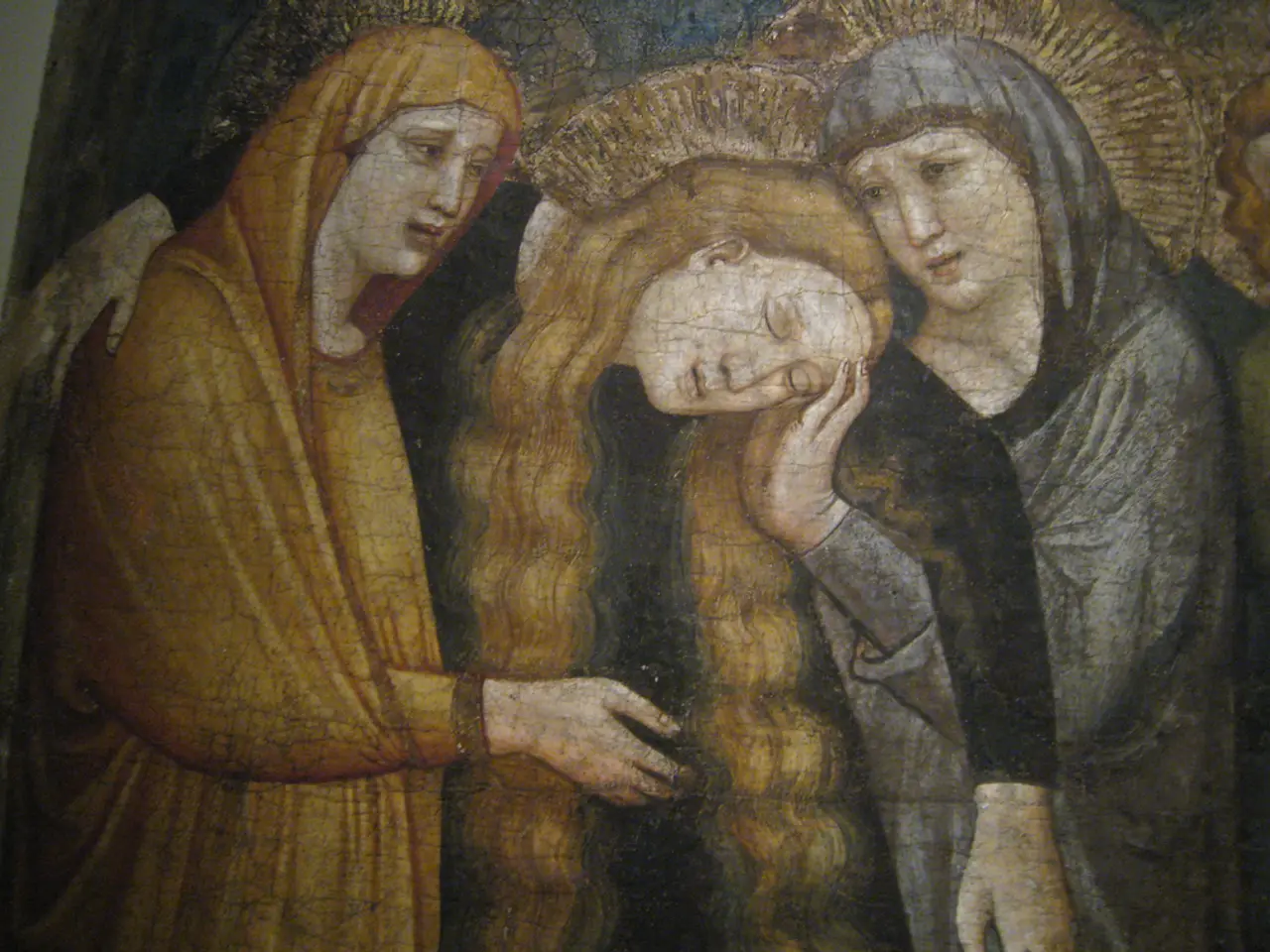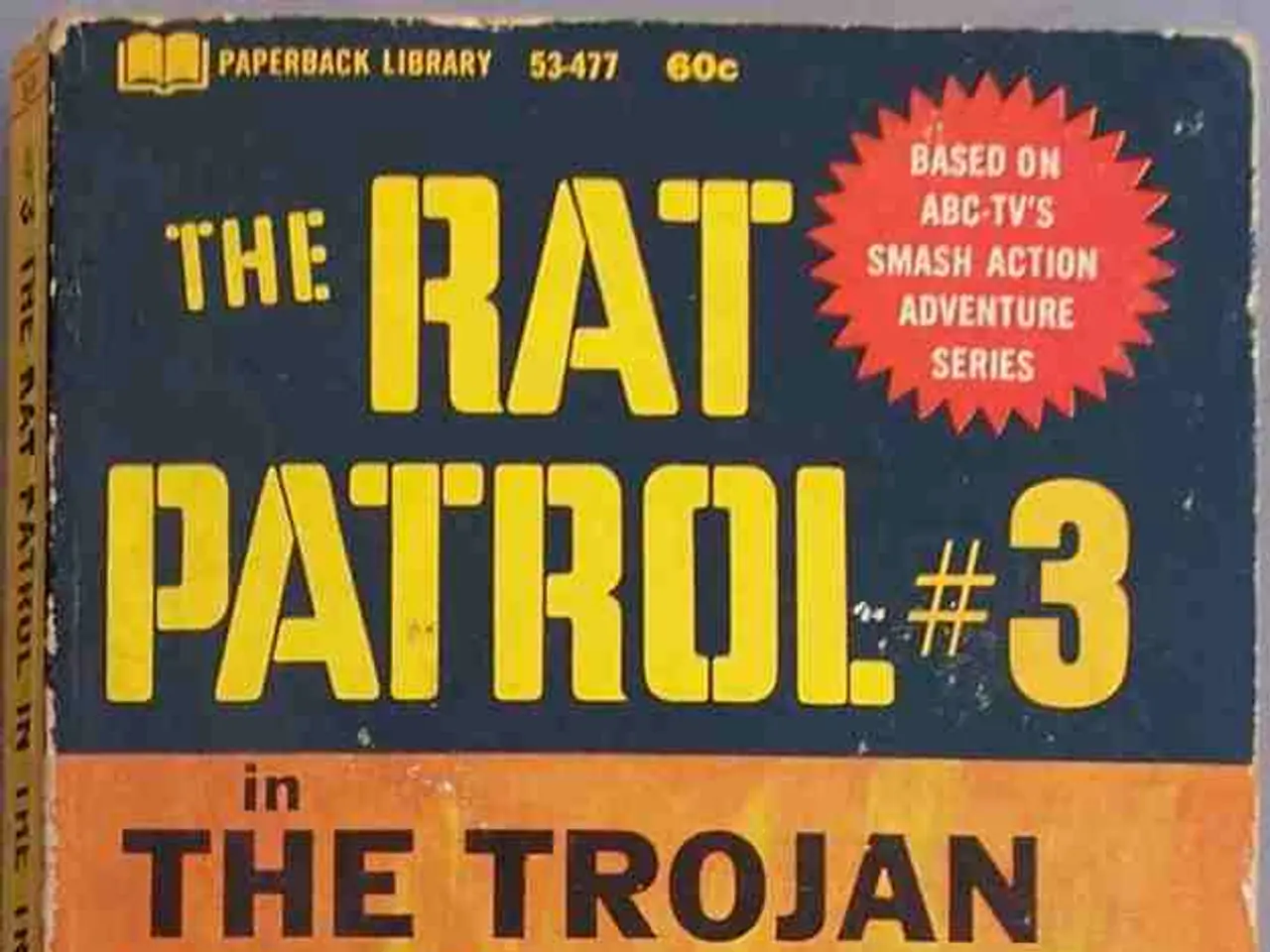Actor Dhanush expresses distress over altered version of 'Raanjhanaa', calling it a troubling precedent for art and artists, stating that the new ending has substantially removed the film's essence.
In the rapidly evolving world of cinema, India finds itself grappling with a significant issue: the lack of a standalone law specifically regulating AI-altered film releases. This legal vacuum has a profound impact on filmmakers' moral rights, as highlighted in the recent controversy surrounding the AI-modified re-release of the film Raanjhanaa.
Under the Indian Copyright Act of 1957, producers are recognised as the work's authors for copyright purposes, giving them control over its use, including re-releases or alterations. Moral rights, protected under Section 57 of the Copyright Act, grant creators the right to be credited and to object to distortion or mutilation of their work. However, these rights can be waived or limited by contract, as seen in the Raanjhanaa case.
Eros International, the producer of Raanjhanaa, claimed rights to modify the film, including using AI to generate a new ending. Director Aanand L. Rai and lead actor Dhanush publicly objected, terming the alteration as a distortion. The AI-generated version of Raanjhanaa reportedly has an altered ending where Kundan survives, a departure from the original storyline.
The debate extends beyond this single controversy, reflecting a broader concern about AI's integration in creative processes. Industry voices call for stricter regulations that ensure creator consent and preserve artistic integrity. Dwivedi, from Eros International, is developing an internal AI and creative ethics framework that includes clear labelling of any AI-enhanced or alternate versions and preservation and continued access to original works.
The Parliamentary statement in India clarifies that works created with "significant human contribution" are protected by copyright, while fully autonomous AI creations or those with minimal human input are not. This means AI-assisted changes may be protected only when adequately human-involved.
The Raanjhanaa controversy underscores a critical need to balance AI innovation with protection of creators’ moral rights. As AI usage in cinema expands, calls for legal reforms and industry guidelines to safeguard filmmakers’ creative vision and integrity are gaining urgency.
The legal landscape is evolving, and further regulatory or legislative measures may emerge. Meanwhile, the ongoing corporate dispute between Aanand L. Rai and Eros International continues, with Rai criticising Eros for disregarding the creative intent and artistic consent of the makers in the AI-altered re-release of Raanjhanaa. Dhanush, the lead actor, has expressed his opposition to the AI-altered re-release of the film, stating that it strips the film of its soul.
Dwivedi, from Eros International, denies that the AI re-release was a strategic distraction and claims it was under development before legal proceedings. However, Rai positions the controversy as a watershed moment for Indian cinema, drawing parallels to recent AI-related disputes in Hollywood.
The AI-altered Tamil-language re-release of Raanjhanaa has also been criticised for disregarding the creative intent and artistic consent of its makers. Eros International has issued a cease and desist notice to Aanand L. Rai for unauthorized use of Raanjhanaa intellectual property in his upcoming film "Tere Ishk Mein."
The debate transcends their business disagreements, according to Aanand L. Rai. Dwivedi argues that the AI re-release represents an evolution in how films are reimagined, especially in jurisdictions like India where producers are the legal authors of a film. Dwivedi indicates that Eros is evaluating titles in their catalogue for potential AI reinterpretation and may explore collaborative opportunities with original directors or creative leads in some cases.
In conclusion, the debate over AI-altered film releases in India underscores the need for clear regulations to protect creators' moral rights while fostering innovation in the cinema industry. As the legal landscape evolves, it will be interesting to see how this issue unfolds in the future.
- The discussion over AI-altered film releases in India raises concerns about entertainment and the integration of AI in creative processes, particularly in movies and TV, as it impacts celebrities and directly affects general news.
- While the Indian Parliament has clarified that works with significant human contribution are copyrighted, there is a need for policy-and-legislation to address AI-assisted changes and ensure that moral rights of creators are protected, preserving artistic integrity in the domain of politics and policy-and-legislation.
- The ongoing dispute between Aanand L. Rai and Eros International over the AI-altered re-release of the film Raanjhanaa highlights the importance of balancing AI innovation with the preservation of creators’ moral rights, influencing the future of general news, entertainment, and the broader cinema industry.






